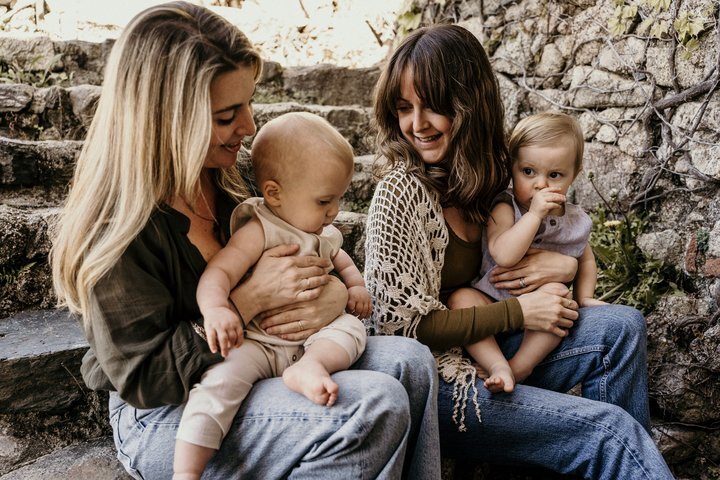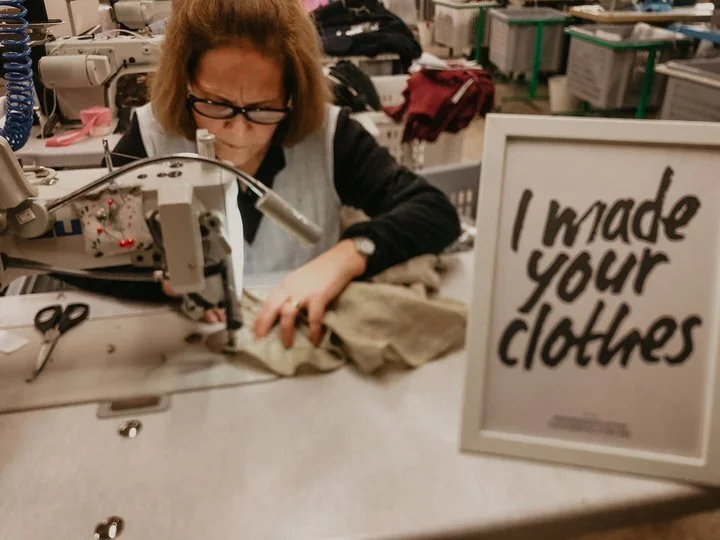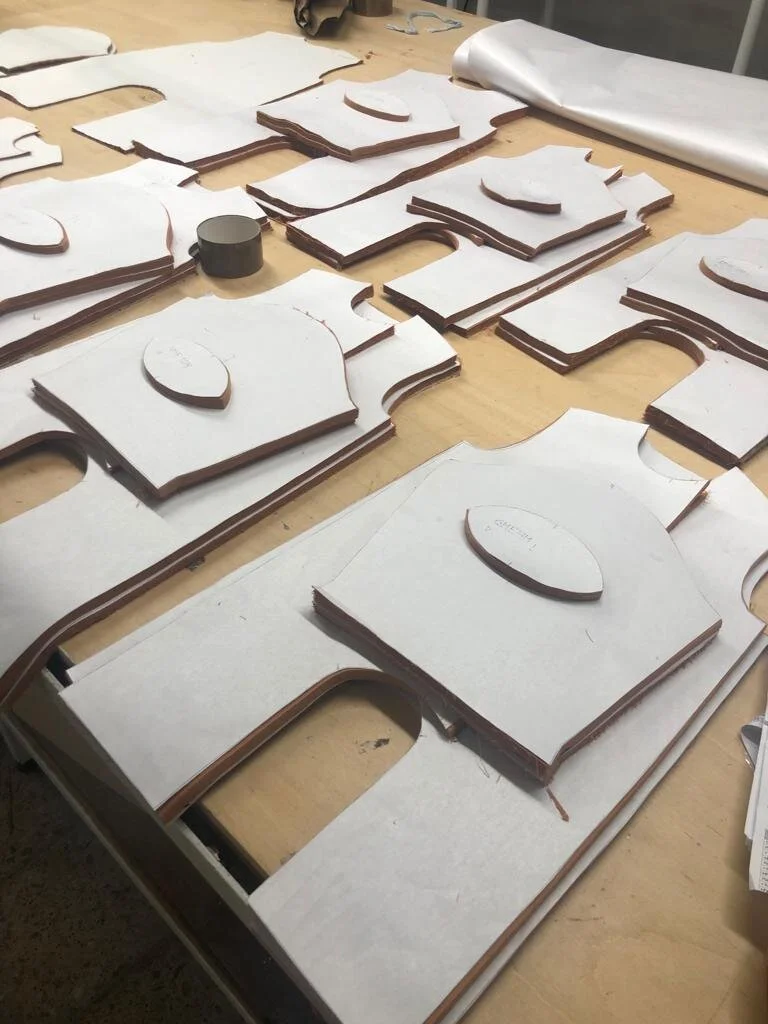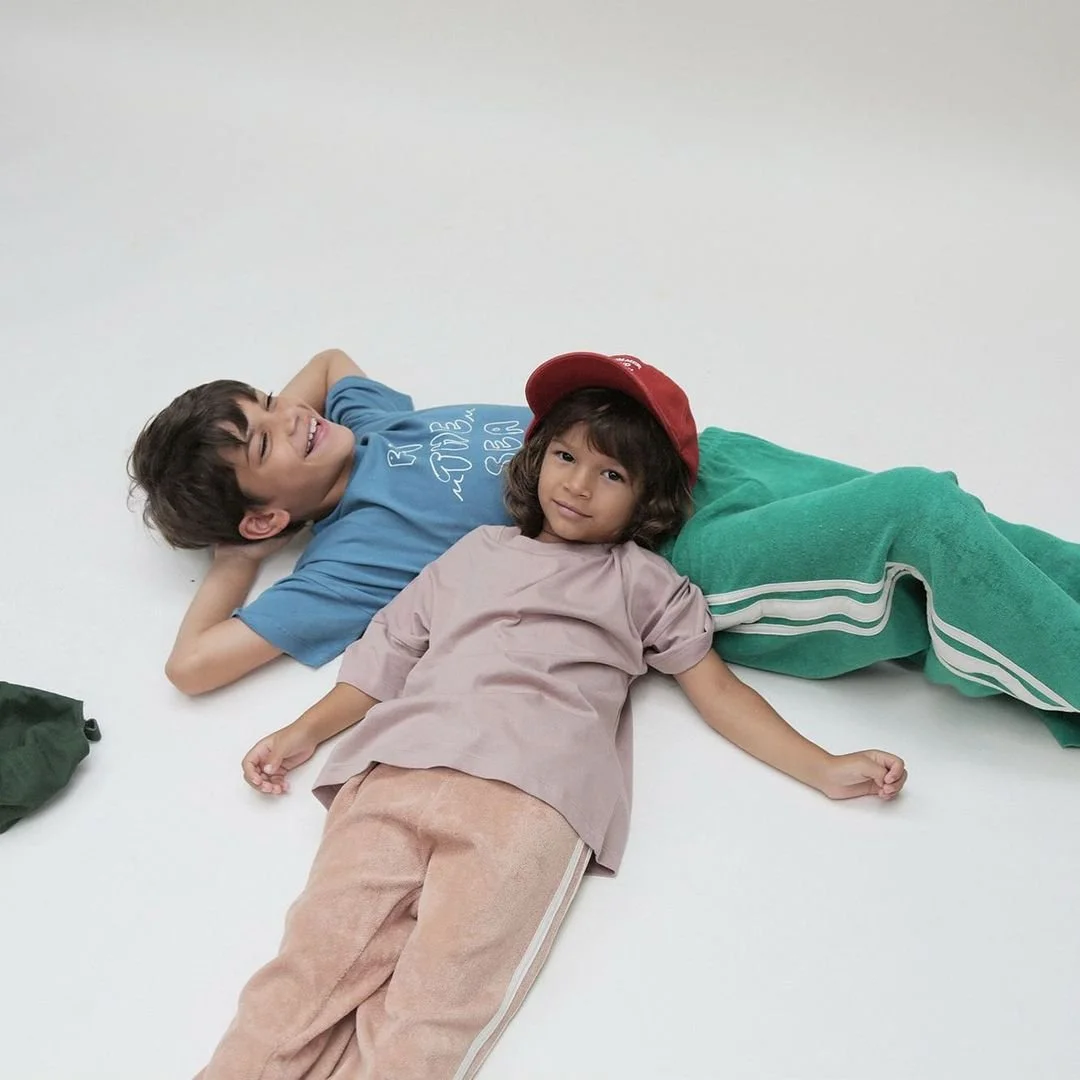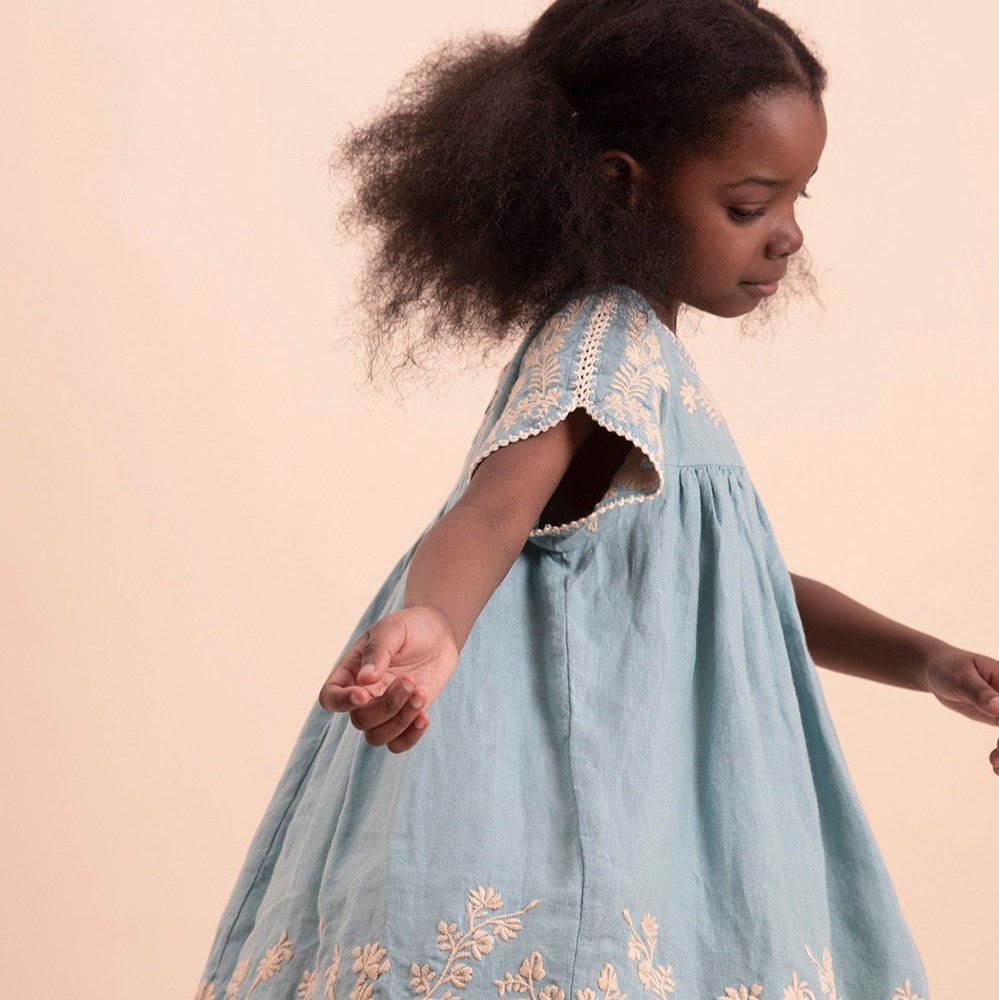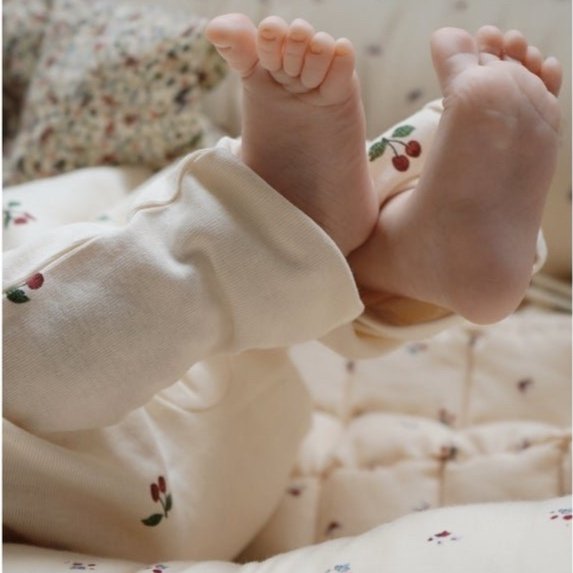Up Close with Jamie Morea, Co-Founder of The Simple Folk
Jamie and Abi, Co-Founders of The Simple Folk
As a minimalist myself, the search for high quality organic clothes for my son is part of what set me on this mission that is Meer Guide. The Simple Folk appeals to this search on so many levels. One of their self-descriptions of the brand, ‘Organic & high-comfort playclothes for the wild-hearted minimalist’ is so aptly phrased.
Their imagery perfectly captures the spirit of the brand. The kids wearing the clothes shine, they look happy, their personalities seem to come through without distraction from the clothes. The clothes are simple, but not; with comfortable but ultimately cool design elements like a dropped crotch, wide leg, elongated top or boxy fit. They’re also offered in the softest earthy shades meant to blend with nature.
Started by two friends, Jamie Morea and Abigail Brown, when they both had a newborn and a toddler. They focused heavily on the feel of the materials they used, made sure the brand was ethically and responsibly produced and lastly that it was practical, for both the kids wearing it and the parents washing and caring for the garments.
The result is easy to wear, easy to wash, high-comfort kids clothes, good for them and good for the earth. They exclusively use organic or natural materials, either GOTS or OEKO-TEX certified, all handmade in Portugal in small batches.
They also give back. They are members of the Change for Women Collective and support several organizations committed to children’s education. You can learn more HERE.
One of the founders, Jamie, recently took time to tell Meer Guide what The Simple Folk is all about, how sustainability influences their company decisions and even some of her favorite personal things.
ANYTHING YOU WANT TO SHARE ABOUT THE ETHOS OF YOUR COMPANY?
As mothers, we became aware of the true cost of fast, disposable, and toxic fashion and were compelled to go against the odds and start our own line of childrenswear.
Abi and I set out to create minimalist, organic, practical, and artisan pieces that support wild-hearted play, are kind to the planet, further ethical production standards, and are healthy and toxin-free for our little ones.
We are driven to lead the way toward a more conscious future that values quality over quantity and have mindfully designed our pieces to be timeless, simple, sustainable, and luxuriously soft, so that each garment can be loved over and over and effortlessly passed between siblings.
Abi and Jamie, Co-Founders of The Simple Folk
PLEASE TELL ME ABOUT WHERE YOU’RE LOCATED AND YOUR TEAM.
I (Jamie) am based in Portugal (where our community of sewers and knitters are) and Abi (my co-founder) is based in England. Our incredible team is fully distributed throughout the US, EU, and UK. As many of us are mothers and value the ability to work from home, we have chosen a more modern approach and do not have a central office.
Jamie and Abi, Co-Founders of The Simple Folk
WHERE ARE THE COLLECTIONS PRODUCED? ARE YOU ABLE TO CLOSELY MONITOR YOUR PRODUCTION?
Our pieces are handmade with love in a wonderful, eco-friendly factory near Porto, Portugal. It’s such an uplifting place, filled with local and proud artisans and the warmest, small community spirit.
We visit often and work closely together to bring our dreams to fruition. We are very hands-on every step of the way, and feel fortunate to have found partners who feel more like family.
Visiting the factory
WHAT WAS YOUR PROCESS IN SELECTING YOUR FACTORIES AND HOW DO YOU ENSURE YOUR MANUFACTURERS ARE MEETING BEST ETHICAL PRACTICES ONGOING?
Early in the process, a GOTS certified factory in India was recommended to us. When we asked the factory to arrange a visit, they told us we couldn’t. That wasn’t ok for us.
We spoke to over thirty factories in Portugal, we visited ten, and finally narrowed it down to the few that aligned most with our goals, values, and ethos. Our woven factory is GOTS certified, OEKO-TEX® certified, and runs on green energy. They take several measures to prioritize sustainability, including recycling their own well water and using power generated by solar panels. Beyond that, we fell in love with the deep sense of community that’s ever-present, and were happy to see that those who cut, sew, and dye the garments are honored, respected, empowered, and enjoy all of the perks associated with their esteemed profession, including ample breaks and private health care. There’s joy and dancing in the air, and the energy there is so infectious! It’s truly something to witness.
As in everything we do, selecting our production partner was a long, intentional process (which actually caused us to launch our very first collection very late in the season relative to industry standards). But for us, we simply won’t compromise or take shortcuts. We’d rather do the right thing and further our mission of carving out a path for a more sustainable and conscious future than do the easy thing and launch “on time”.
Scenes from the factory during The Simple Folk production
WHAT KIND OF FABRICS DO YOU MOST USE?
We use natural and organic fibers, and ensure every material in the completed garment is OEKO-TEX® certified, giving parents the peace of mind that every fabric, button, and dye we use is clean and toxin-free. Comfort and feel are a huge priority for us, so we always choose the softest fabrics we can find. To make our pieces even more luxuriously soft, many of our garments are carbon brushed (instead of being softened with harsh chemicals in a wash).
HOW DO YOU SELECT THE FABRICS YOU USE AND WHERE DO THEY COME FROM?
Our fabrics are sourced from fabric mills in close proximity to our production facility. We always know how we want the material to feel and move, but since texture and softness are absolutely essential to us, we often feel our way through several samples during our exhaustive search for the perfect fabric. Sometimes we find it right away, and sometimes it takes a lot of patience, but when you find the one that is just right, the feeling is magical and it is always well worth the wait.
CAN YOU PLEASE TELL US HOW ABOUT YOUR FABRICS ARE DYED?
Our materials are all dyed in OEKO-TEX® certified dye houses in Portugal at facilities that we’ve personally visited and hand-picked. We’re proud to say that dye houses in Portugal (and all of Europe) are regulated very heavily, especially in comparison to Asia. For example, our dye house recycles all of the water used to dye the fabric, cleaning it, and using it again. In Asia, dyed water is commonly released into local rivers. This is a practice we could never support, and thanks to Europe’s standards and regulations, would not be tolerated. Additionally, many of our garments are garment dyed, meaning they are dyed once they are assembled, rather than dying the fabric. This gives a gorgeous, hand-dyed vintage effect.
The Simple Folk material bolts
Factory visit
WHAT DO YOU DO WITH YOUR OVERSTOCK OF MATERIALS AND FABRIC SCRAPS?
To avoid waste, we use software that slots in all of the different patterns from the same fabric on to one roll of fabric. For example, where you would usually have a space between t-shirt cuttings, we fill that space with our smaller pieces like our hats, headbands and bandanas. We work hard to get every bit of mileage out of every piece of fabric we possibly can! We are also in the process of using some leftover fabric to make tank tops and t-shirts for one of the children’s charities we support in Africa.
Production in Portugal
Patterns in Portugal
CAN YOU PLEASE TELL US ABOUT YOUR PACKAGING FOR SHIPMENTS TO CUSTOMERS?
We ship plastic-free to our customers. The garments are folded into an organic cotton tote bag which can be reused for so many things! For delivery, that cotton bag is placed in a paper envelope or cardboard box which is recyclable.
To keep our garments in pristine condition and reduce damage (which actually increases the financial and environmental cost), we store them and ship them to wholesalers in poly bags made from recycled plastic instead of plastic produced from petroleum derivatives. We take great care to work with our wholesale customers to recycle those same bags, so that nothing goes to waste.
Keeping in the spirit of everything we create, our packaging is as minimal and clean as possible, and we are always in search of greener and better options.
The Simple Folk labels
DO YOU WANT TO SHARE ANYTHING ELSE WITH OUR READERS?
We are so committed to changing the fashion industry that we made the decision internally to reject the traditional clothing markup of 5-6x. Making small batch, artisan items in an ethical and sustainable way means that our cost of a finished garment is often higher than the retail price of clothing at big box stores. This represents a substantial price difference to the consumer, making it harder for them to jump ship on their fast fashion purchasing habits.
We decided that the only way to entice many consumers to the other side and to impact change on the level we’d like to see is to absorb much of the price difference ourselves. So we’ve opted to reduce our profit margins and to only mark our items up 3-4x.
As part of a multifaceted approach, we are heavily focused on educating consumers on who made their clothes, how they made them, what materials and processes they were made with, and why it matters. Our content regularly emphasizes that less is more while sharing insights on simplifying and minimalism, facts on consumerism, pollution, and landfills, and tips on how to mend and upcycle our clothes.
Armed with knowledge and better alternatives, we believe we can come together as parents to vote with our dollars and to prioritize the health and well-being of our planet and its inhabitants. This is the legacy we want to pass on to our children.
WHAT’S THE ONE THING YOU FEEL IS MOST IMPORTANT TO LIVING A MORE SUSTAINABLE LIFE DAY TO DAY?
Living internationally has taught us that less is often more and has helped us break the habits we once had of buying stuff that is low quality, a product of questionable practices, or that we don’t actually need or won’t truly love. This shift has made us lighter, happier, healthier, and more sustainable as a family.
Jamie Morea
How would you describe your personal style?
I would have to say Motherhood Casual. I tend to gravitate toward a simple, muted, understated, practical and comfortable style.
What are your favorite clothing/accessory brands to shop for yourself?
We travel a lot which delightfully forces me to have a minimalist approach to fashion (only so much will fit in our luggage as a family of 4!). That said, I do love supporting small, local, and artisan shops...
I have a friend who makes gorgeous linen pieces, Mauna, in Hawaii that have become staples for me.
The Avant in Barcelona and London
What are your 3 wardrobe essentials you couldn't live without?
My sunhat (It’s the most inconvenient piece to lug around the world, but I do it anyway…it’s often seen on my husband’s head in line for airport security ;))
Birkenstock sandals (with or without socks)…seriously, rain or shine, hot or cold…you’ll likely find me in them.
The one purchase you've never regretted?
My green linen jacket by Harris Wilson…it’s the perfect layering piece that goes with me everywhere.
Sister Katie, The Everyday Shirt
Birkenstock, Arizona
WHAT DO YOU DO FOR YOURSELF IN ORDER TO KEEP BALANCED BETWEEN FAMILY, WORK AND SELF?
When you can work anytime and anywhere, it’s easy to work all of the time and everywhere (especially when you love your work so).
After reading the wonderful book Essentialism, my partner and I decided to schedule our lives according to our priorities…on the list is family time each day along with space for mediation and exercising. It has made all of the difference in the world!
